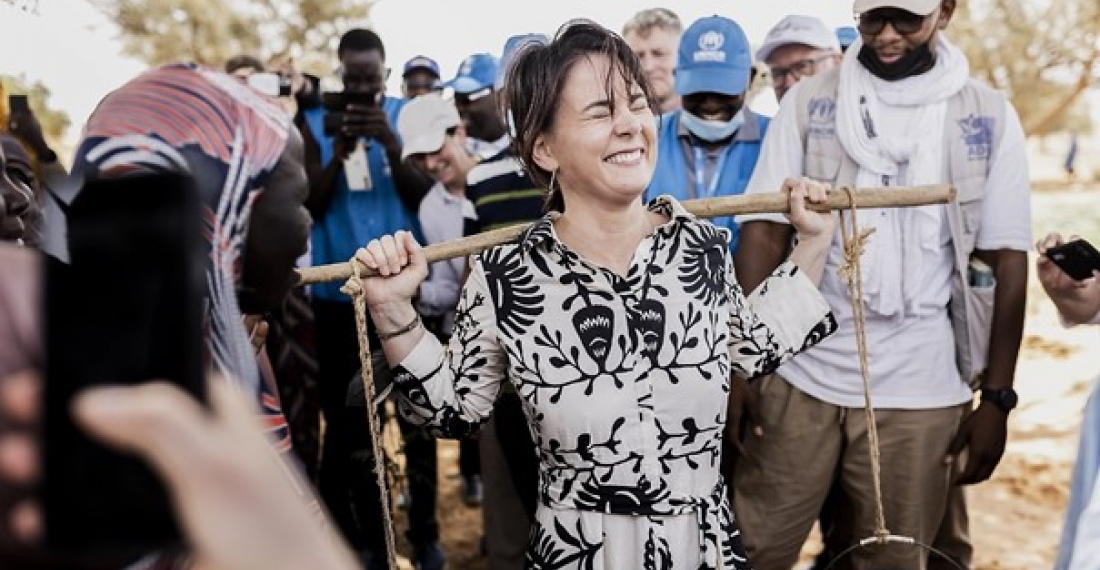Germany’s minister of foreign affairs Annalena Baerbock is visiting the Sahel ahead of a government decision on extending the Bundeswehr’s mission in the region.
Amidst renewed political instability and terrorist activity in the Sahel, Baerbock must decide whether German troops will continue their commitment to MINUSMA - the UN peacekeeping mission in the region – and the EUTM, the European Union Training Mission. 300 German soldiers participate in the EUTM mission in Mali, while approximately 1000 soldiers are stationed there as part of MINUSMA.
The timing of this visit is relevant considering that the German mandate of these two missions will expire in the coming weeks unless the Bundestag extends the two field operations.
Relations between countries of the European Union and Mali, the epicentre of the jihadist terrorist threat in the Sahel, have noticeably deteriorated in recent months. The lack of commitment by the Malian transitional government, in power since a coup in 2020, to respect a planned deadline for holding fresh elections and returning the country back to civilian rule, as well as the new cooperation between the Malian military government and Russian mercenaries, are the main reasons for this tense relationship.
France already announced the withdrawal of its thousands of troops from Mali, ending its Barkhane and Takuba anti-terrorist military operations in Mali and will relocate them to Niger in the coming months.
Germany is still considering whether a withdrawal from the region would be the solution. Although a German involvement through the blue helmet mission MINSUMA since 2013 has not fulfilled its objectives so far, an abrupt withdrawal would only worsen the security situation in Mali and strengthen Russian influence.
Because of concerns about the influence of the Russian paramilitary group Wagner in the region, the European Union halted parts of the EUTM mission on the 11th April 2022. But whilst suspending its training missions with Malian soldiers, the European military will continue advisory and educational activities.
The German government is also considering transferring its troops to Niger, given they already have a logistical supply hub in that country thanks to the Niamey air transport base of the MINUSMA mission. This is expected to be the main topic of conversation between Baerbock and Mohamed Bazoum, Niger's President.
However, beyond the terrorist threat in the region, which has already caused 2.1 million internal displacements in the past 8 years according to the UN, it is the war in Ukraine which could have the most direct repercussions in West Africa. Ukraine, the world’s fifth-largest exporter of wheat, is currently incapable of delivering wheat flour to the Sahel region, causing food insecurity for millions of people.
It is a reminder that the crisis in the Sahel is not only military, but also social. In a region of the world that has seen 5 coups in the space of 18 months in Mali, Chad, Guinea, Sudan and Burkina Faso – coups that were often supported by populations dissatisfied with their living conditions – stabilising governments, and reassuring the population has never seemed so necessary.






